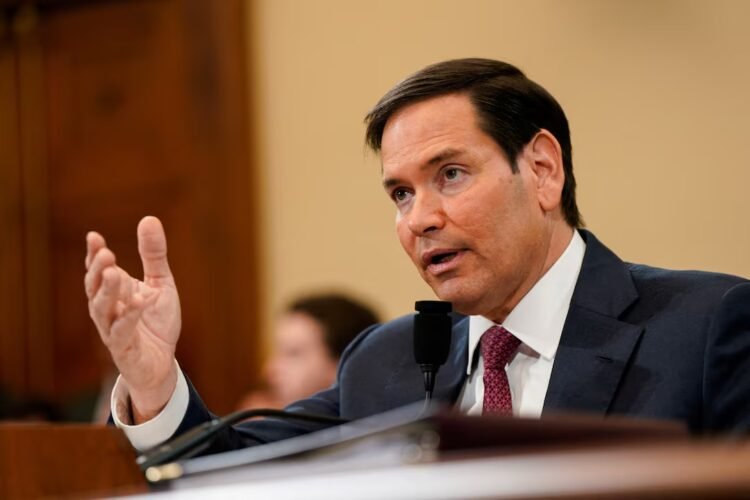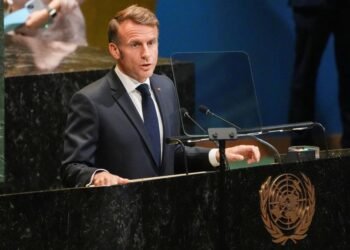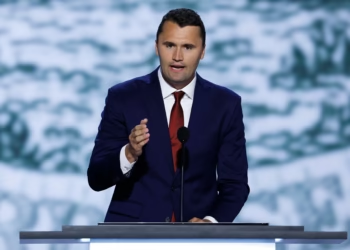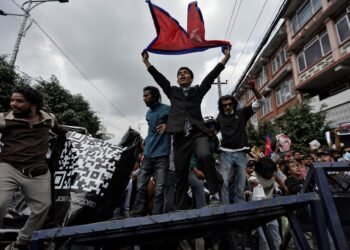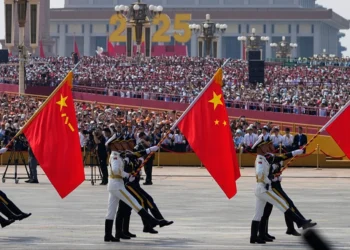WASHINGTON — The United States will begin revoking visas for certain Chinese students and ramping up scrutiny of international applicants, Secretary of State Marco Rubio announced Wednesday, marking a sharp escalation in the Trump administration’s crackdown on academic ties with China.
Under the new policy, the U.S. will revoke existing visas and block future ones for Chinese nationals studying in sensitive fields or with alleged ties to the Chinese Communist Party. The State Department, working with the Department of Homeland Security, will implement aggressive enforcement measures, Rubio said.
“Under President Trump’s leadership, we will act decisively to protect national security and the integrity of U.S. research,” Rubio wrote in a statement, signaling renewed efforts to limit China’s access to critical U.S. technology and defense-linked research through academic channels.
Political Pressure and Academic Fallout
The announcement follows mounting Republican pressure on U.S. universities to sever partnerships with Chinese institutions. Eastern Michigan University this week ended two engineering collaborations with Chinese universities after criticism from GOP lawmakers.
House Republicans have also targeted Duke University and Harvard, accusing them of facilitating access to federally funded research and working with Chinese government-linked entities. Harvard, in particular, has been accused of training members of a Chinese paramilitary group and was temporarily blocked from enrolling any international students, though that move was halted by a federal judge amid legal challenges.
President Trump, speaking Wednesday in the Oval Office, criticized Harvard for enrolling too many foreign students and called for that figure to be reduced to 15%. “We want people who love our country, not people who bring problems from radicalized regions,” he said.
The administration has also suspended new visa interviews and plans to introduce more invasive background checks, including detailed reviews of social media activity — a policy expected to disproportionately affect Chinese applicants.
Rising Uncertainty for International Students
The broader crackdown has created deep anxiety among the more than 1 million international students in the U.S., especially the over 270,000 Chinese nationals who represent nearly a quarter of all foreign students in American higher education.
Jonathan Friedman of PEN America warned the unclear scope of the new guidelines could chill academic freedom and global collaboration. “This policy risks upending the long-standing position of the U.S. as a beacon for intellectual and cultural exchange,” he said.
Northeastern University, which hosts more than 20,000 international students, said it was monitoring the situation and preparing contingency plans in case students face visa delays.
Meanwhile, individual students are feeling the pressure. Vladyslav Plyaka, a student at the University of Wisconsin-Oshkosh, had planned to visit his mother in Poland and renew his visa. Now, with appointments suspended, he fears leaving the country. “I don’t think I have enough trust in the system at this point,” he said.
Broader Clampdown and Federal Investigations
The visa restrictions revive a central theme of Trump’s first term: scrutinizing foreign influence in U.S. education. During that period, the Education Department opened 19 investigations into foreign funding and found several universities underreported contributions from China and Russia.
Rubio also pledged that the State Department will revise its visa criteria to subject all applicants from China and Hong Kong to heightened scrutiny. Since 2019, visa applicants have been required to share their social media handles — a process expected to become even more rigorous.
The administration has already cut more than $2.6 billion in federal grants to Harvard amid disputes over compliance with transparency regulations and accusations of campus radicalism and antisemitism.
With Trump pushing ahead in an election year and using foreign student policy as a national security and cultural wedge issue, universities across the U.S. now face renewed uncertainty — and the prospect of lasting damage to their global standing.

 English
English













































